2011 awardees

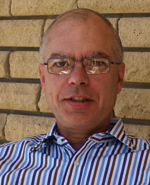
Professor Brian Kennett FAA FRS
Professor of Seismology, Research School of Earth Sciences
Australian National University
Brian Kennett has made major contributions to the understanding of the Earth using seismological methods, adding geodynamic insight to an unusual combination of theoretical, numerical and observational skills. He has made seminal advances in understanding the Earth’s internal processes, ranging from studies of reflection seismology to the free oscillations of the Earth. In addition, he has pioneered the development of influential new methods for understanding in physical terms the propagation of seismic waves in complex media and made significant innovations in inversion methods for geophysical problems.
2011 David Craig Medal for research in chemistry
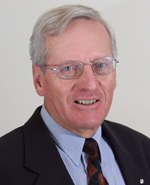
Professor Ian Dance FAA
Professor of Chemistry, School of Chemistry
The University of New South Wales
Ian Dance has led international research in four areas of fundamental chemistry. He pioneered the preparation and understanding of compounds containing metals and sulphur, he revealed the existence of a large number of basic inorganic compounds in gaseous form, he developed an understanding of the ways in which many molecules recognise and organise their surroundings, and he developed a chemical understanding of the long-elusive mechanism by which plants chemically convert unreactive nitrogen in the atmosphere to the forms required for life.
2011 Hannan Medal for research in applied mathematics and computational mathematics
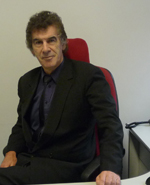
Professor Colin Rogers FAA
Emeritus Professor & Visiting Professorial Fellow
The University of New South Wales
Colin Rogers has made major contributions in the detection of hidden invariance and symmetry properties in nonlinear mathematical systems descriptive of complex physical processes. He is recognised as a leading world authority on Bäcklund and reciprocal type transformations and has demonstrated their extensive application in nonlinear continuum mechanics in such diverse areas as elasticity, magnetogasdynamics liquid crystal and soliton theory.
2011 Jaeger Medal for research into earth sciences
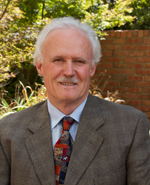
Professor Ian Jackson
Research School of Earth Sciences
Australian National University
Ian Jackson’s research has centred on laboratory study of the physical properties of geological and analogue materials under conditions simulating those of the Earth's deep interior. This has involved the intensive development of novel methods for the measurement and analysis of elastic and near-elastic behaviour related to the speeds and attenuation of earthquake waves. Such laboratory-based insights find application in the interpretation of seismological models for the Earth’s internal structure in terms of temperature and chemical composition.
2011 Thomas Ranken Lyle Medal for research in mathematics or physics
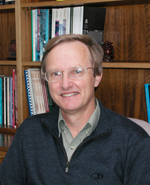
Professor James Stanislaus Williams FAA
Research School of Physics and Engineering
Australian National University
James Williams developed ion implantation processes which are widely used in the microelectronics industry for manufacturing computer chips. He has developed phase change memory technology based on silicon which is expected to play an important role in next generation of high density memory devices. His work on compound semiconductors has made an impact in optoelectronic device technology. He has provided exceptional leadership in materials science in Australia and is highly regarded internationally for his contributions in electronic materials.
Early- and mid-career awards
2011 Fenner Medal for research in biology (excluding the biomedical sciences)
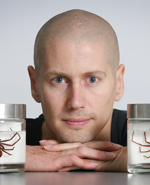
Dr Bryan Fry
ARC Queen Elizabeth II Fellow, Department of Biochemistry & Molecular Biology, Bio21 Institute
University of Melbourne
Bryan Fry's multidisciplinary research examines the molecular evolution of protein toxins across the full geographical and taxonomical range of venomous animals, from the baking heat of the desert habitat of Australia's inland taipan (the world's most venomous snake) to the deep-sea giant octopus from Antarctica. His research has enabled formulation of a general theory of venom evolution and it has the potential to contribute substantially towards the area of drug development based on peptides from venomous animals.
2011 Ruth Stephens Gani Medal for research in human genetics
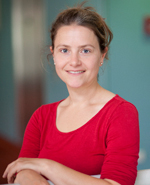
Dr Alicia Oshlack
Senor Research Officer, Bioinformatics Division
The Walter and Eliza Hall Institute of Medical Research
Alicia Oshlack studies gene regulation using high throughput genomic technologies where expression from tens of thousands of genes can be detected simultaneously. She has made major advances in understanding human evolution and the biology of human genomes by comparing changes in gene expression levels between humans and apes. She has developed methodology specifically for gene expression analysis that can be applied to many aspects of human biology and medical genetics. She is pioneering analysis of new DNA sequencing technology for studying gene expression.
2011 Gottschalk Medal for research in the medical sciences
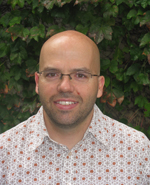
Dr Stuart Tangye
NHMRC Senior Research Fellow, Group Leader, Principal Research Fellow, Immunology Program
Garvan Institute of Medical Research
The primary goal of Stuart Tangye’s research is to investigate the development of different classes of human immune cells, and determine how these processes are compromised in individuals with diseases such as immunodeficiencies that are caused by errors in single genes, and to understand how these gene errors result in catastrophic conditions. His findings have identified important roles of key genes in normal immune responses, and revealed pathways that could be targeted to modulate responses in immunodeficiency or autoimmunity.
2011 Anton Hales Medal for research in earth sciences
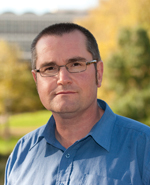
Professor Craig Simmons
Professor of Hydrogeology, Director, National Centre for Groundwater Research and Training
Flinders University
Craig Simmons is an international expert in hydrogeology recognised for his contributions to variable density groundwater flow phenomena. He has greatly advanced our understanding of computer modelling used to solve variable density flow problems, was involved in pioneering work which first detected density driven convection in a field based groundwater system, has developed innovative laboratory equipment for the visualisation of dense plume migration, and has contributed major theoretical advances on how geologic heterogeneity controls dense plume migration. His work continues to transform the discipline of hydrogeology.
Inaugural Christopher Heyde Medal for research in pure mathematics
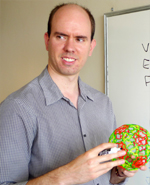
Dr Anthony Henderson
Senior Lecturer, School of Mathematics and Statistics
The University of Sydney
Anthony Henderson has made fundamental contributions in representation theory, an area which concerns the algebraic patterns underlying collections of geometric transformations. He has invented geometric spaces which give new information about common symmetry types, and has introduced new methods for performing calculations in existing geometric spaces which take their symmetry into account. His work combines ideas from different areas of mathematics, and provides explicit formulas for use in a wide range of problems which involve observations on spaces with symmetry.
2011 Dorothy Hill Award for female researchers in the Earth sciences including reef science, ocean drilling, marine science and taxonomy in marine systems
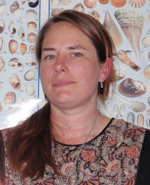
Dr Kirsten Benkendorff
Lecturer, School of Environmental Science and Management
Southern Cross University
Kirsten Benkendorff is an acclaimed Australian malacologist whose research contributions span from the molecular to the ecosystem scales of marine biology and ecology. Her research approach involves applying sound experimental design, along with the tools of immunology and natural products chemistry to investigate molluscan evolutionary adaptations, thus providing new leads for the development of novel bioresources. Through this approach, she has made significant advances across a range of research disciplines that can be grouped under the themes of environmental, aquaculture and human health.
2011 Le Fèvre Memorial Prize for research in basic chemistry
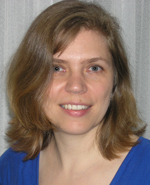
Associate Professor Martina Stenzel
Australian Research Council Future Fellow, Centre for Advanced Macromolecular Design
The University of New South Wales
Martina Stenzel designs and fabricates nanoparticles based on specialised polymers in order to deliver drugs to their targets. Using innovative combinations of polymer synthesis techniques, she creates new nanoparticle architectures with attributes which avoid the pitfalls of targeted drug delivery, thereby enhancing chemotherapeutic effectiveness. These achievements in developing the materials of nanomedicine have been widely recognised internationally.
2011 Moran Medal for research in statistics
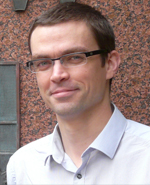
Dr Scott Sisson
ARC Queen Elizabeth II Research Fellow, School of Mathematics and Statistics
The University of New South Wales
Scott Sisson has made highly significant contributions to computational statistics and extreme value modelling. His research in approximate Bayesian computation has enabled researchers at the leading-edge of many scientific disciplines to examine realistic models and hypotheses, rather than be forced to use simpler, less credible alternatives. His research on extreme value modelling has enabled improved inferential procedures and highlighted the dangers of poor statistical modelling. In applying these techniques to challenging problems in other disciplines, Scott has had a very positive impact on furthering scientific research in a wide range of applications.
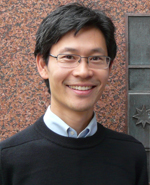
Dr Mark Tanaka
Senior Lecturer & ARC Queen Elizabeth II Fellow, School of Biotechnology & Biomolecular Sciences
The University of New South Wales
Mark Tanaka’s research concerns the evolution and population biology of microorganisms. He uses mathematical and statistical methods to study the dynamics of bacteria and viruses. A particular focus of his research is the transmission patterns of infectious diseases. He has investigated key parameters in the epidemiology of tuberculosis in published research which has led to conclusions with public health policy implications that were hitherto unavailable. Tanaka’s research is highly original and excellent, judged by the highest international standards.
2011 Pawsey Medal for research in physics
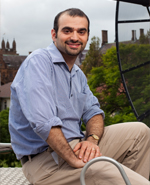
Professor Bryan Gaensler
ARC Federation Fellow and Professor of Physics, School of Physics
The University of Sydney
Bryan Gaensler's pioneering studies of cosmic magnetism have opened a new window on the Universe. Bryan has derived detailed three-dimensional maps of large-scale magnetic fields throughout the cosmos, and is now using these results to understand what has created and sustained cosmic magnets over billions of years of the Universe's evolution. As a by-product of studying astrophysical magnetism, he has also made the stunning discovery that the Milky Way is twice as thick as was previously thought, a result that fundamentally changes our understanding of our home Galaxy.





